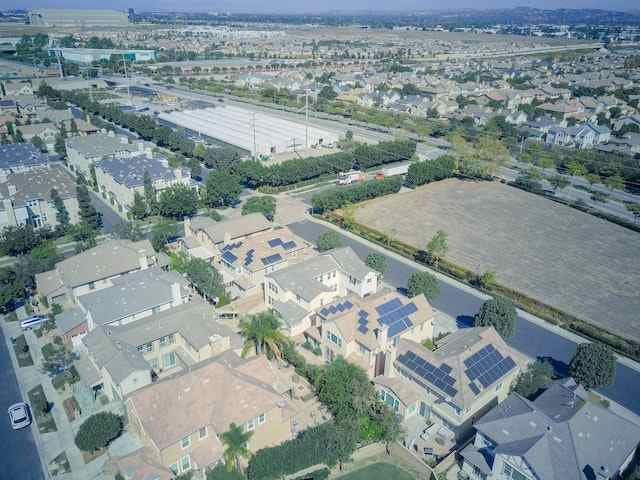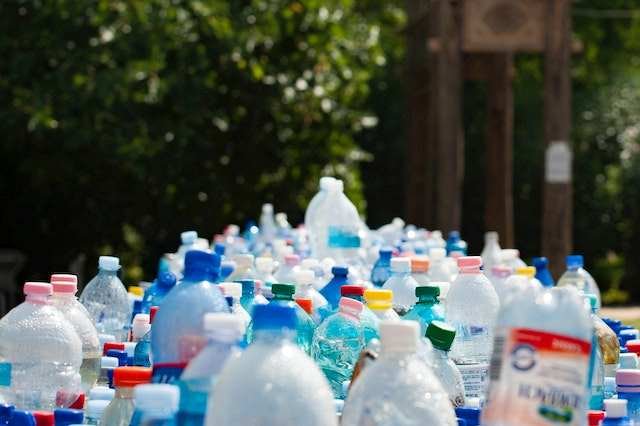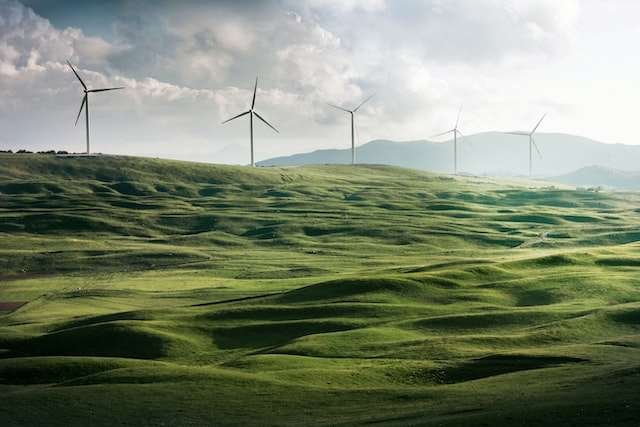Sustainable Buildings: 3 Simple Ways to Reduce Carbon Footprint
As environmental awareness is increasingly becoming a ruling factor in decision-making within many of the world’s largest organizations, companies and leaders are facing heavy pressure from different stakeholders, including the government and potential buyers, to reduce their carbon footprint and contribute positively to the environment.
Within the real estate sector, organizations must integrate sustainability into their plans from the get-go. The growing impact of global warming, climate change, waste and air pollution have long become impossible to ignore with experts trying to find more eco-friendly ways to do business and “go green”.
For real estate developers, it is first and foremost an exercise in educating key stakeholders. Balancing design and facilities with sustainability, within a development, is not easy. Consumers may love sustainable developments but are mostly unwilling to create a home in a building that is not visually and practically appealing.
Once that balance is met and the cost of entry is weighed against the overall brand and bottom-line benefits, it is an easier sell not only to the stakeholders but subsequently to the end-user.
Managing and reducing carbon footprints as part of a low-carbon strategy, with its inherent cost benefits and revenue opportunities, is increasingly important in building design. Building green is one of the best strategies to modulate negative climate change because the technology to make substantial reductions in energy and CO2 emissions already exists and is not prohibitively expensive.
Green buildings are integrating eco-friendly concepts into building development and operations, to improve environmental sustainability. At ZāZEN One, the first project by ZāZEN Properties, this is a topic close to the heart and one we see as critical to the future of a sustainable Dubai.
Trakhees LEED
Green Building Certified, ZāZEN One, focuses on key components to offer sustainable residences and is encouraging other developers to follow suit, helping end-users reduce their carbon footprint daily.
Here are three simple ways living in a sustainable building, like ZāZEN One, can help achieve this:
3 Simple Ways living in a sustainable building can help you reduce carbon footprint

Water Management
A major factor contributing to the carbon footprint of a building is the amount of energy expended to supply, treat and use its water. Water-oriented strategies significantly reduce energy use and greenhouse gas emissions. Designing for water conservation, efficiency and reuse are among the largest and most cost-effective energy and carbon reduction strategies available.
Through low-flow water fixtures, water-efficient landscaping and drip irrigation systems, property development can reduce water consumption in dramatic quantities. Through such practices, ZāZEN One will achieve an approximate 33% annual reduction in water usage.
Waste Management

The
seven components of the Green Building concept influence and support one another. Responsible waste management is one of the keys to creating an energy-efficient environment. People often ignore the fact that energy resources, human resources, time, technology and money are often needed to manage waste optimally so as not to pollute the environment.
Some waste is even categorized as difficult to be recycled, thus increasing the chance that the waste will end up at the landfill or be accidentally released into the ocean.
Through the early development of a construction waste management plan, a developer is able to incorporate strict guidelines in the tender requirements for potential contractors to follow. This should include the most simple step of making the appropriate waste and recycling bins available throughout the construction process.
Energy Management

Everything down to your exterior walls, roof and glazing should be designed to be as efficient as possible to allow for less heat transfer, and therefore require less energy for cooling throughout the year. Similarly, efficient HVAC systems and thermostat controls should be considered in the design process. Even simply using an efficient, low-wattage lighting system that is integrated into your developments, significantly reduces the electricity required to run the building on an annual basis.
Developers shouldn’t neglect exterior lights and common areas when planning their properties, as using motion sensors and switch timers for daylight times can have a massive impact on monthly electricity bills.
A building’s carbon footprint can be reduced by sourcing its operational energy from environmentally responsible sources, or by generating renewable energy on-site. Harnessing solar energy is a component in achieving this within real estate developments.
ZāZEN One has integrated solar panels across the development, which aims to generate approximately 223,550 kWh of power annually, which is about 25% of the estimated energy a building of this size will likely consume over the same time period.
This saves the building as much as AED 250,000 on its annual power bill. From a developer’s perspective, this allows you to offer your end-users a lower service charge, adding even further value to their living experience.
From a holistic perspective, all of the aforementioned factors contribute to an annual CO2 reduction. For ZāZEN One, these aspects alone will save a whopping 440 metric tonnes of carbon emissions. Implementing sustainable practices from the get-go will play a big role in your company’s environmental, social and economic impact, and leading with a sustainable mindset will help in more ways than one. To learn more about Trakhees Green Building Certification, visit
www.trakhees.ae.
Units at ZāZEN One are now for sale exclusively through their sales partner, JLL MENA. Customers are invited to visit the ZāZEN One
apartments in the Jumeirah village triangle.
About ZāZEN Properties:
Launched in 2018, ZāZEN Properties is building unique residential developments in the
best community in Dubai, catering to the mid-market segment consumer and providing a ‘community within a building.’ Its projects are built with sustainability in mind, with access to ample lush, open spaces and solar power, reducing the building’s energy consumption.
ZāZEN Properties’ flagship development, ZāZEN One, located in the vibrant JVT community, is the perfect option for families looking to find a home that caters to all aspects of modern family life. Set to finish construction in December 2021 and handover at the end of January 2022, the development consists of 86 residences offering one, two, and three-bedroom duplex apartments ranging from 881 to 2803 sq ft, ZāZEN One also accommodates a unique option of a two-bedroom apartment with a maid’s room, something is rarely seen in the market before.
Construction is over 40% complete and units at ZāZEN One are now for sale exclusively through their sales partner, JLL MENA. Customers are invited to visit the ZāZEN One show apartment in JVT and can book their visit by contacting +97150 170 9376 or visiting
www.zazen.ae.
Office Location:
ZāZEN Property Development LLC
Churchill Tower 1, Office 3002
Business Bay Dubai, United Arab Emirates
Telephone: +971 50 170 9376
For Sales Enquiries:
Sales – JLL –
zazenone@eu.jll.com
WhatsApp on +971 50 170 9376
For all media inquiries contact:
Bianca Riley | Sophie Simpson | Nour Chaoui I Aaron Illathu
Atteline
Phone: + 971 52 906 1282 | +971 56 352 8696 | +971 56 3374162 I +971 58 5752884
E-mail:
zazen@atteline.com

 The seven components of the Green Building concept influence and support one another. Responsible waste management is one of the keys to creating an energy-efficient environment. People often ignore the fact that energy resources, human resources, time, technology and money are often needed to manage waste optimally so as not to pollute the environment.
Some waste is even categorized as difficult to be recycled, thus increasing the chance that the waste will end up at the landfill or be accidentally released into the ocean.
Through the early development of a construction waste management plan, a developer is able to incorporate strict guidelines in the tender requirements for potential contractors to follow. This should include the most simple step of making the appropriate waste and recycling bins available throughout the construction process.
The seven components of the Green Building concept influence and support one another. Responsible waste management is one of the keys to creating an energy-efficient environment. People often ignore the fact that energy resources, human resources, time, technology and money are often needed to manage waste optimally so as not to pollute the environment.
Some waste is even categorized as difficult to be recycled, thus increasing the chance that the waste will end up at the landfill or be accidentally released into the ocean.
Through the early development of a construction waste management plan, a developer is able to incorporate strict guidelines in the tender requirements for potential contractors to follow. This should include the most simple step of making the appropriate waste and recycling bins available throughout the construction process.
 Everything down to your exterior walls, roof and glazing should be designed to be as efficient as possible to allow for less heat transfer, and therefore require less energy for cooling throughout the year. Similarly, efficient HVAC systems and thermostat controls should be considered in the design process. Even simply using an efficient, low-wattage lighting system that is integrated into your developments, significantly reduces the electricity required to run the building on an annual basis.
Developers shouldn’t neglect exterior lights and common areas when planning their properties, as using motion sensors and switch timers for daylight times can have a massive impact on monthly electricity bills.
A building’s carbon footprint can be reduced by sourcing its operational energy from environmentally responsible sources, or by generating renewable energy on-site. Harnessing solar energy is a component in achieving this within real estate developments.
ZāZEN One has integrated solar panels across the development, which aims to generate approximately 223,550 kWh of power annually, which is about 25% of the estimated energy a building of this size will likely consume over the same time period.
This saves the building as much as AED 250,000 on its annual power bill. From a developer’s perspective, this allows you to offer your end-users a lower service charge, adding even further value to their living experience.
From a holistic perspective, all of the aforementioned factors contribute to an annual CO2 reduction. For ZāZEN One, these aspects alone will save a whopping 440 metric tonnes of carbon emissions. Implementing sustainable practices from the get-go will play a big role in your company’s environmental, social and economic impact, and leading with a sustainable mindset will help in more ways than one. To learn more about Trakhees Green Building Certification, visit www.trakhees.ae.
Units at ZāZEN One are now for sale exclusively through their sales partner, JLL MENA. Customers are invited to visit the ZāZEN One apartments in the Jumeirah village triangle.
Everything down to your exterior walls, roof and glazing should be designed to be as efficient as possible to allow for less heat transfer, and therefore require less energy for cooling throughout the year. Similarly, efficient HVAC systems and thermostat controls should be considered in the design process. Even simply using an efficient, low-wattage lighting system that is integrated into your developments, significantly reduces the electricity required to run the building on an annual basis.
Developers shouldn’t neglect exterior lights and common areas when planning their properties, as using motion sensors and switch timers for daylight times can have a massive impact on monthly electricity bills.
A building’s carbon footprint can be reduced by sourcing its operational energy from environmentally responsible sources, or by generating renewable energy on-site. Harnessing solar energy is a component in achieving this within real estate developments.
ZāZEN One has integrated solar panels across the development, which aims to generate approximately 223,550 kWh of power annually, which is about 25% of the estimated energy a building of this size will likely consume over the same time period.
This saves the building as much as AED 250,000 on its annual power bill. From a developer’s perspective, this allows you to offer your end-users a lower service charge, adding even further value to their living experience.
From a holistic perspective, all of the aforementioned factors contribute to an annual CO2 reduction. For ZāZEN One, these aspects alone will save a whopping 440 metric tonnes of carbon emissions. Implementing sustainable practices from the get-go will play a big role in your company’s environmental, social and economic impact, and leading with a sustainable mindset will help in more ways than one. To learn more about Trakhees Green Building Certification, visit www.trakhees.ae.
Units at ZāZEN One are now for sale exclusively through their sales partner, JLL MENA. Customers are invited to visit the ZāZEN One apartments in the Jumeirah village triangle.